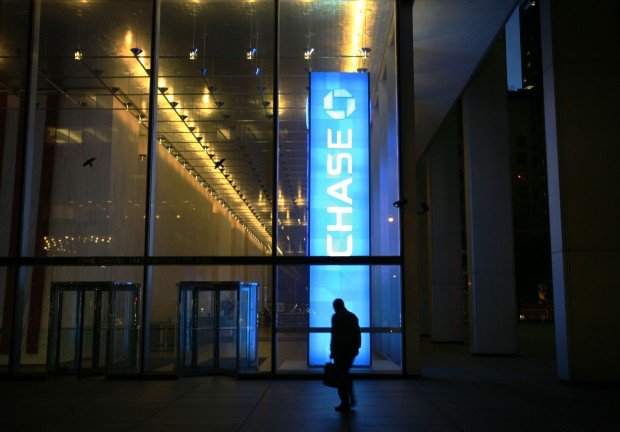A lawyer for a former JPMorgan Chase & Co employee who worked with “the London Whale” Bruno Iksil, has been trying to convince U.S. prosecutors that his client was the unwitting victim of manipulation by his superiors, a source familiar with the matter said on Friday.
The negotiations, which have taken place privately and only involved a handful of lawyers in the Manhattan U.S. Attorney’s office, are part of former employee Julien Grout’s bid to have criminal charges of fraud against him dropped.
On Aug. 14, prosecutors accused Grout, who was Iksil’s deputy in the bank’s Chief Investment Office in London, of trying to hide hundreds of millions of dollars in trading losses by marking positions in a credit derivatives portfolio at falsely inflated prices.
In a meeting with prosecutors late last month, Grout’s lawyer Edward Little argued Grout did not know the prices were wrong, the source said. Instead, based on the instructions he was given by superiors, including Iksil, Grout recorded prices he thought were correct.
In response, the source said, prosecutors offered Grout the chance to talk to them directly and tell them whatever he knew without the risk of further incrimination. He declined, the source said.
The U.S. government still has the option not to pursue the charges against Grout. But if a grand jury votes to indict him, the opportunity for the charges to be dismissed will vanish. Prosecutors are expected within the next month to seek indictments against Grout and his former boss, Javier Martin-Artajo, who was also charged.
To prove in criminal court Grout committed fraud, prosecutors will have to show he knew the prices of the trades he was entering were too high and that he consciously decided to record incorrect prices.
The trades in question were part of a series of outsized positions Bruno Iksil took in an illiquid market for credit derivatives, leading other traders to nickname him “the London Whale.” When news of the JPMorgan traders’ big bets became public early last year, the bank was forced to quickly unwind the trades, incurring a $6.2 billion loss.
JPMorgan said an internal investigation found evidence that someone might have tried to deliberately hide the mounting losses from others in the bank.
The Federal Bureau of Investigation conducted its own investigation. Iksil struck a deal with U.S. authorities and agreed to become a cooperating witness for prosecutors.
Prosecutors eventually charged Martin-Artajo and Grout with fraud and conspiracy to falsify books and records. Iksil was not charged.
Time is running out for Grout’s team to get prosecutors on their side. U.S. authorities will need an indictment against Martin-Artajo to proceed with his extradition from Spain, where he was arrested and released in August, and Grout was likely to indicted at the same time.
According to the source familiar with the meetings, Grout’s lawyer told prosecutors Grout was simply following orders that Martin-Artajo and Iksil gave him.
The criminal complaint against Grout describes pressure Martin-Artajo put on Grout in February 2012 to “defend the positions,” especially just before a month-end review of the group’s profit-and-loss reports by senior bank executives.
The complaint said that Grout began marking the positions “at a price more favorable to the CIO’s profits.”
But communication records released to the public earlier this year at the end of an investigation by the Senate Permanent Subcommittee on Investigations show the chain of command that was in place while Grout was making the marks. On March 23, 2012, Iksil and Grout chatted online and discussed the prices that needed to be entered into the trading book at the end of the day.
“All that I am asking you to do is tell Javier what you see,” Iksil told Grout in the online chat. “That’s it and he decides what we show.”
Determining prices in the illiquid market is a fairly subjective exercise because there is no central clearing mechanism for the credit derivatives Iksil was trading. Convention in the industry has been to mark the price of a position at the midpoint between the prices at which market participants are willing to sell or buy it.
Grout’s lawyer further argued that Grout believed there was a conspiracy on Wall Street to squeeze JPMorgan in the derivatives market, according to the source. The belief that they were being squeezed – possibly by traders in other parts of JPMorgan— was something Iksil eventually described in a complaint he filed to JPMorgan’s compliance department.
In the same March 23, 2012 chat, Iksil and Grout discussed gathering evidence to show dealers taking the opposite sides of their trades were deliberately quoting unfavorable prices to them to try to hurt their positions. Grout collected examples, including emails and chats they had exchanged with traders at other firms, they thought would show others at the bank how they had been treated unfairly in the market.
Prosecutors offered Grout the chance to meet with them for a proffer session, a special set of interviews during which he would be able to tell them whatever he knew without the risk of incriminating himself.
But Grout declined the offer, the source said, because if prosecutors were to go ahead with their case against him the proffer session would have served as a preview to his defense arguments.





















 Insurance Groundhogs Warming Up to Market Changes
Insurance Groundhogs Warming Up to Market Changes  AIG, Chubb Can’t Use ‘Bump-Up’ Provision in D&O Policy to Avoid Coverage
AIG, Chubb Can’t Use ‘Bump-Up’ Provision in D&O Policy to Avoid Coverage  20,000 AI Users at Travelers Prep for Innovation 2.0; Claims Call Centers Cut
20,000 AI Users at Travelers Prep for Innovation 2.0; Claims Call Centers Cut  Retired NASCAR Driver Greg Biffle Wasn’t Piloting Plane Before Deadly Crash
Retired NASCAR Driver Greg Biffle Wasn’t Piloting Plane Before Deadly Crash 